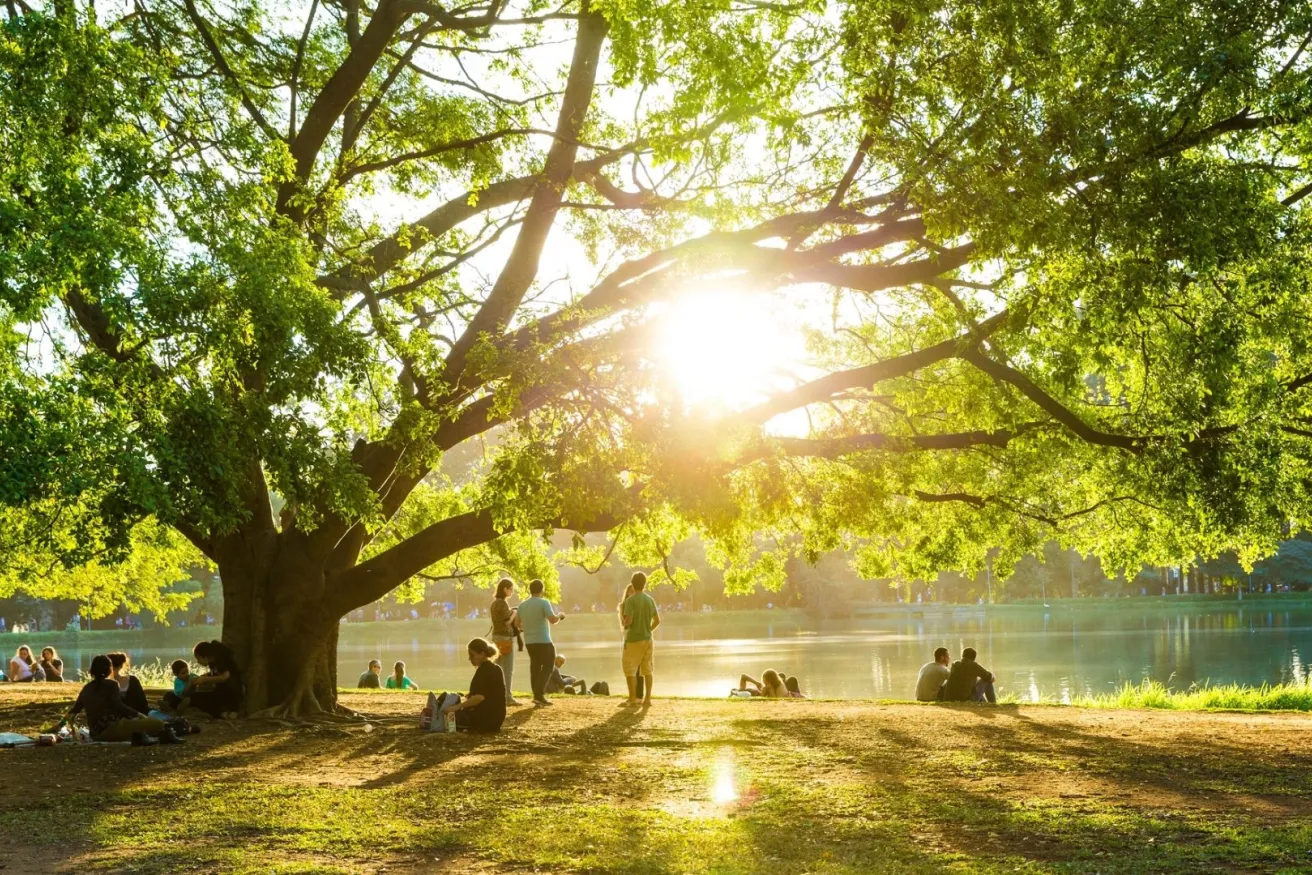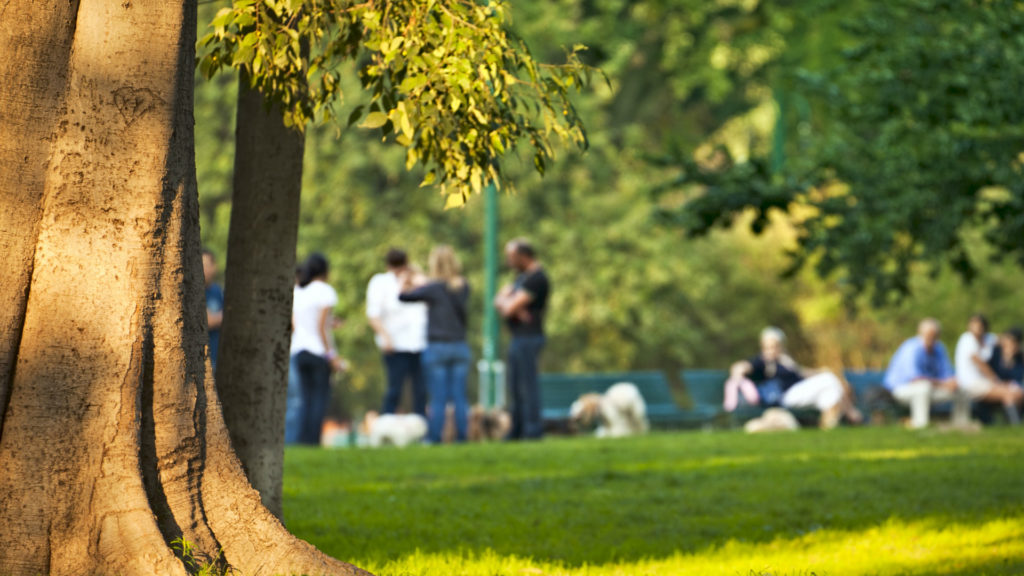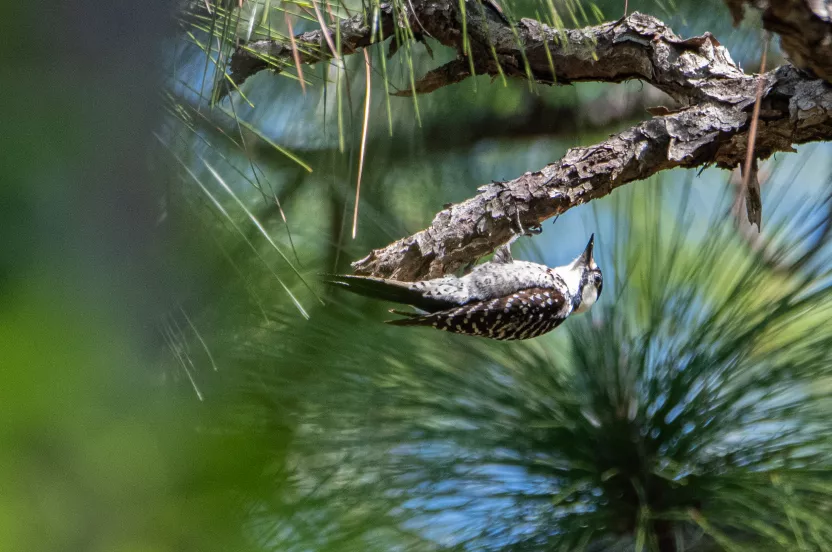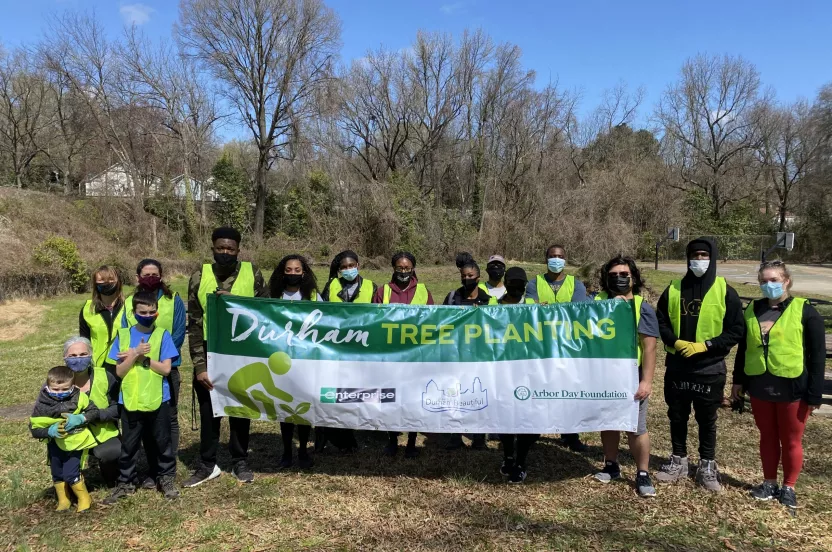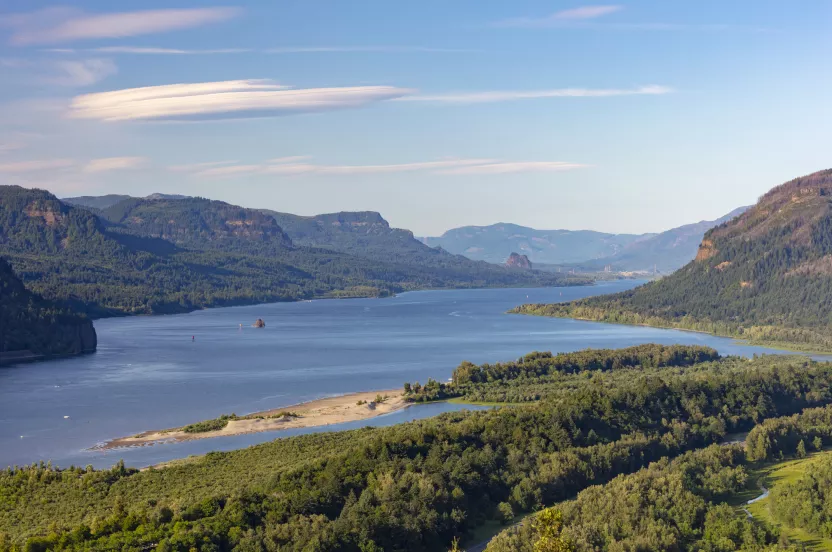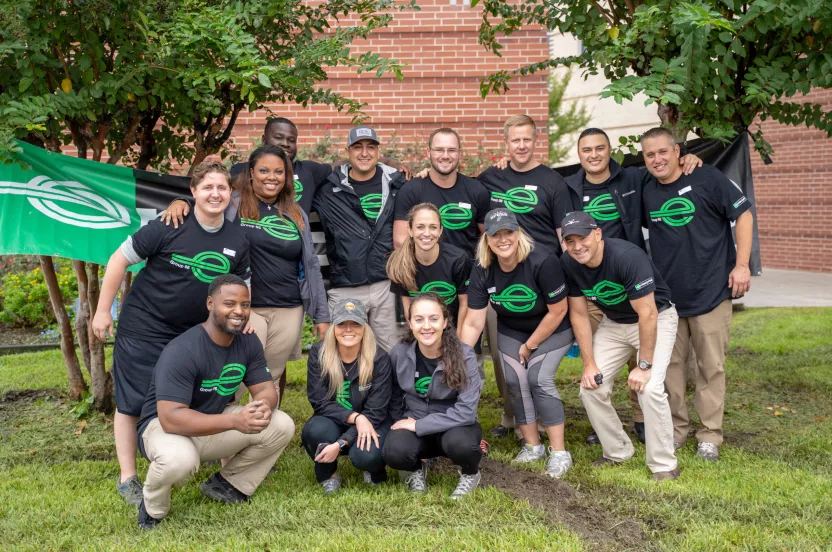Now live: The 2025 Canopy Report. Learn how Americans see trees. GET THE REPORT
Over the past few months, we have learned to change our routines and adapt to new norms as we come to terms with a new reality. This extended time inside our homes has brought about some positive side effects, including recognizing many things we've taken for granted, like spending time outdoors.
Some of the few places that remain safe to explore while social distancing during COVID-19 are city parks and green spaces. In these unprecedented times, there is a great desire to be outdoors and connect with nature, especially as the weather warms up. We have seen people eagerly flock to community gardens, neighborhood parks, and green spaces during the pandemic. And this is not surprising, considering the many physical and mental health benefits of connecting with nature including lowering stress, mental fatigue, depression, anxiety, and improving overall mood.
Green spaces are good for human health and they are crucial for community health. Research shows that cities with healthy community forests are more resilient. They have cleaner air and water, reduced heat islands, lower energy use, and even experience less crime. Cities gain from the environmental, social and economic benefits of urban trees and green spaces when it is part of overall planning and infrastructure.
Making green spaces accessible to everyone in the community can be a challenge. We’ve witnessed it firsthand during the pandemic as those living in crowded and urban areas lack access to parks or green spaces. With support from partners like TD Bank, communities can receive grants that allow them to revitalize parks and barren spaces in underserved neighborhoods.
Making Green Space More Accessible
We at the Arbor Day Foundation applaud efforts such as TD Green Space Grants, which support green infrastructure development, tree planting, forestry stewardship, and community green space development as a way to improve environmental and economic benefits toward a low-carbon economy. Through the program, towns and cities in the U.S. and Canada are eligible to receive $20,000 grants in support of local forestry projects in areas of great need within a community. A total of $400,000 will be granted in 2020, demonstrating a deep commitment to communities.
Each year, the Arbor Day Foundation and TD Bank award 20 communities with TD Green Space Grants that help drive programs to improve tree canopies and green spaces in neighborhoods lacking canopy coverage. Given the disproportionate impact of the pandemic on already vulnerable communities, providing green buffers in urban neighborhoods needing tree canopy has never been more important.
Shelley Sylva, the Head of Social Impact for TD Bank in the U.S. recently observed that "the quality of the environment impacts everything in our lives, so we need to do our part to provide everyone with a livable, healthy and sustainable environment. I congratulate all of the TD Green Space grant recipients and look forward to working with Esperanza, a faith-based non-profit organization, to bring their grant to life in my hometown, Philadelphia."
Investing in green infrastructure and community forestry programs is an affordable solution that addresses so many global issues that we face today. Restricted access to the outdoors during these challenging times has highlighted how much people value these outdoor spaces and the importance of making green space accessible to all. Research continues to show that cities with healthy urban forests are healthier and happier. The time has come to start treating urban forestry like the public health issue that it is and invest in a better tomorrow.
Learn more about the TD Green Space program and see how communities have used it to improve neighborhoods.
